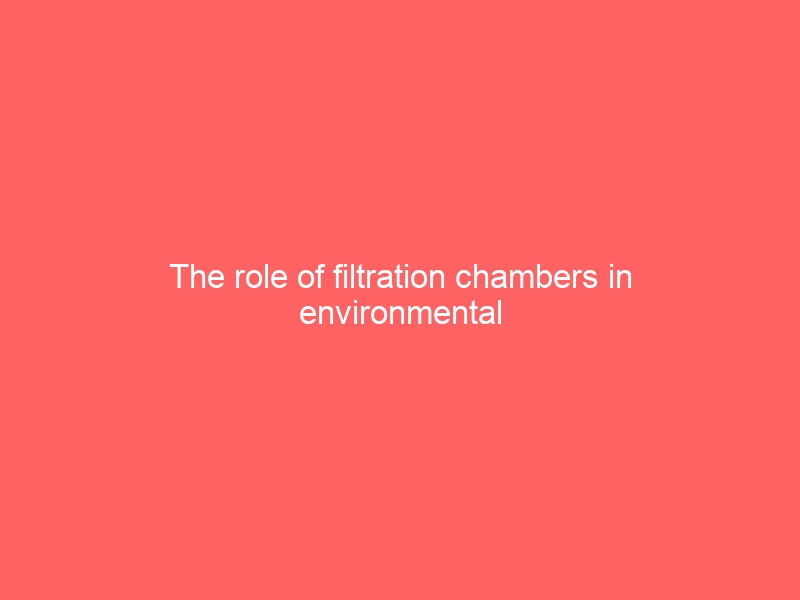Filtration chambers play a crucial role in environmental protection and resource conservation by ensuring that pollutants and contaminants are removed from wastewater before it is released into the environment. These chambers are a key part of the wastewater treatment process and are essential to maintaining the health and integrity of our natural ecosystems.
One of the main functions of filter chambers is to separate solid particles from wastewater. These chambers are designed to trap and retain solids such as sand, silt and debris, preventing them from being released into bodies of water where they could harm aquatic life and degrade water quality . By removing these solid particles, filter chambers help prevent the buildup of sediment in waterways, which can have a negative impact on aquatic habitats and biodiversity.
In addition to removing solid particles, filtration chambers also play a vital role in removing organic and inorganic pollutants from wastewater. These pollutants can include harmful chemicals, heavy metals and pathogens that pose a threat to human health and the environment. By capturing and retaining these pollutants, filter chambers help reduce the risk of contamination of bodies of water and minimize the potential for negative impacts on aquatic ecosystems and surrounding lands.
Additionally, filtration chambers contribute to resource conservation by capturing and retaining valuable resources that can be recovered and reused. For example, solids and organic matter captured in filtration chambers can be processed and converted to biogas through anaerobic digestion, providing a renewable energy source that can be used to produce electricity and heat. This not only helps reduce dependence on fossil fuels but also provides a sustainable solution for organic waste management.
Additionally, filtration chambers play a key role in protecting water resources and ensuring the availability of clean and safe water for human consumption and agricultural use. By removing pollutants and contaminants from wastewater, filter chambers help preserve water quality and prevent the spread of waterborne diseases. This is essential to protect public health and promote sustainable water management practices.
In conclusion, filter chambers play a vital role in environmental protection and resource conservation by removing pollutants and contaminants from wastewater, preventing degradation of water quality, and promoting sustainable management natural resources. By using filtration chambers as part of the wastewater treatment process, we can protect our ecosystems, safeguard water resources and support the responsible use of valuable resources. It is essential that we continue to prioritize the use of filtration chambers in wastewater treatment to ensure a sustainable and healthy environment for current and future generations.
The role of filtration chambers in environmental protection and resource conservation




